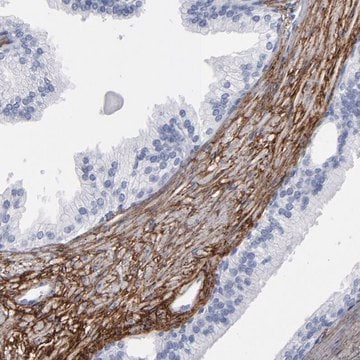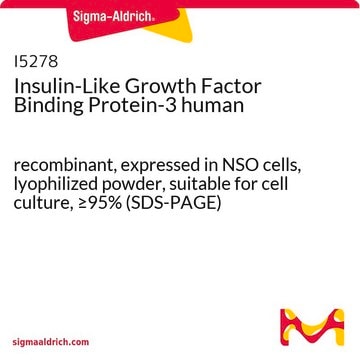ABT256
Anti-Telo-Collagen Type I, A1/COL1A1
from rabbit, purified by affinity chromatography
Sinónimos:
Collagen alpha-1(I) chain, Alpha-1 type I collagen
About This Item
Productos recomendados
biological source
rabbit
Quality Level
antibody form
affinity isolated antibody
antibody product type
primary antibodies
clone
polyclonal
purified by
affinity chromatography
species reactivity
mouse, human, sheep
technique(s)
flow cytometry: suitable
immunohistochemistry: suitable
western blot: suitable
NCBI accession no.
UniProt accession no.
shipped in
wet ice
target post-translational modification
unmodified
Gene Information
human ... COL1A1(1277)
General description
Specificity
Immunogen
Application
Cell Structure
Adhesion (CAMs)
Flow Cytometry Analysis: A representative lot detected Telo-Collagen Type I, A1/COL1A1 in mouse lung tissue.
Immunohistochemistry Analysis: A representative lot detected Telo-Collagen Type I, A1/COL1A1 in mouse lung tissue.
Quality
Western Blotting Analysis: A 1:1,000 dilution of this antibody detected Telo-Collagen Type I, A1/COL1A1 in 1 µg of mouse liver tissue lysate.
Target description
Physical form
Storage and Stability
Other Notes
Disclaimer
Not finding the right product?
Try our Herramienta de selección de productos.
Storage Class
12 - Non Combustible Liquids
wgk_germany
WGK 2
Certificados de análisis (COA)
Busque Certificados de análisis (COA) introduciendo el número de lote del producto. Los números de lote se encuentran en la etiqueta del producto después de las palabras «Lot» o «Batch»
¿Ya tiene este producto?
Encuentre la documentación para los productos que ha comprado recientemente en la Biblioteca de documentos.
Nuestro equipo de científicos tiene experiencia en todas las áreas de investigación: Ciencias de la vida, Ciencia de los materiales, Síntesis química, Cromatografía, Analítica y muchas otras.
Póngase en contacto con el Servicio técnico








